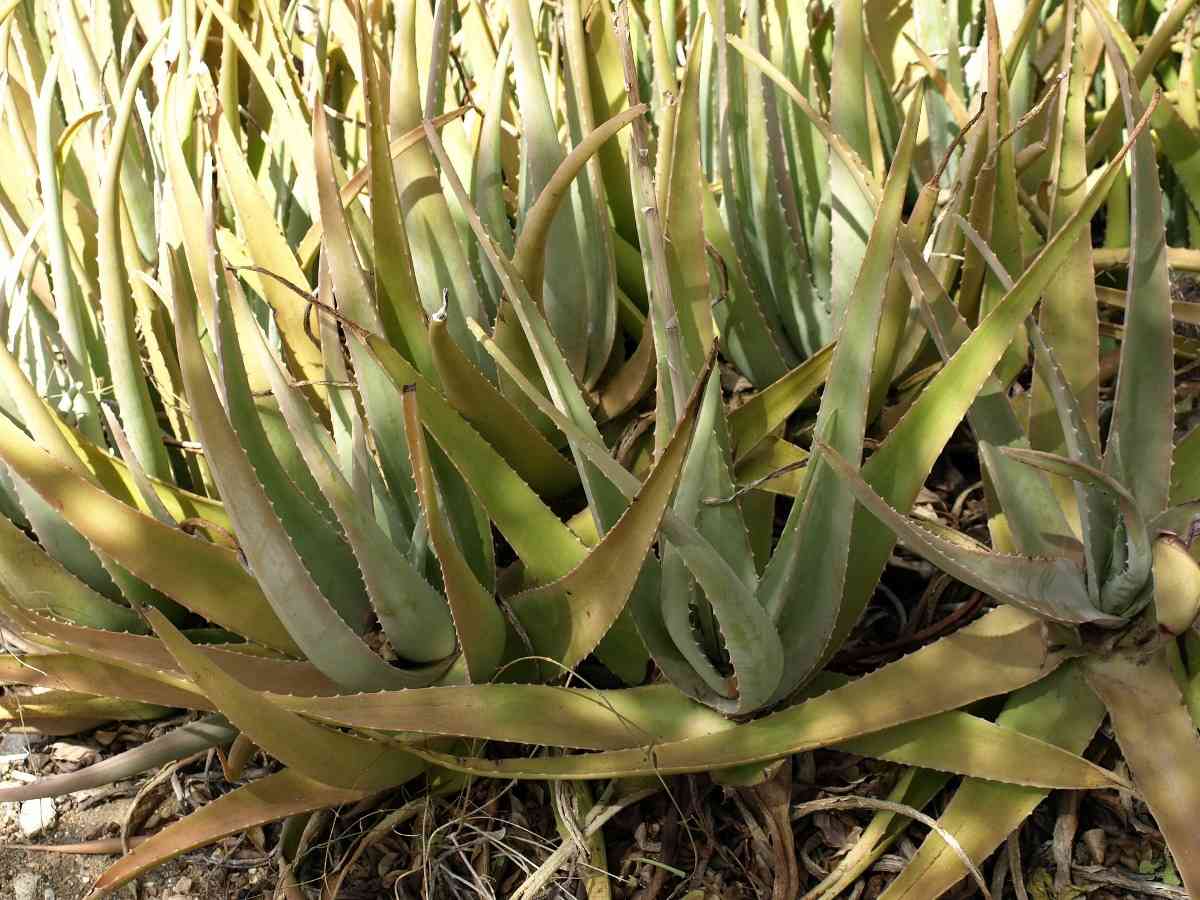Introduction to medicinal plants contract farming and it’s advantages: Medicinal plants are a source of biomolecules with therapeutic potential and lead to developing new drugs. Herbal medicines are considered as safer, better physiological compatibility, and also cost-effective. India is a gold mine of medicinal plants and a rich repository of medicinal knowledge. The demand for medicinal plants is increasing with expansion in human needs and trade purposes. Contract farming can be described as a halfway house between independent farm creation and corporate farming. It involves a contractual relationship between farmers and central processing or exporting units/firms. These units purchase generate from contract farmers under the agreed terms of the contract.
Aromatic plants and herbs used in herbal medicines and personal care products are the key ingredients of the farm’s high earnings. Shankhapushpi, Ateesh, kutki, kuth, kapikachhu, and karanja are some of the herbs that mean little to the urban consumer but are a big source of income for some farmers. Medicinal plants grow best within certain ranges of various factors includes temperature, soil moisture, soil nutrients, light, air pollutants, humidity, soil structure, and pH level. Although these factors affect all plants that are frequently grown or kept in cultural particles such as fertilization, irrigation, spraying with pesticides that may affect their growth considerably.
Medicinal plants play an important role in the development of human cultures around the whole world. Some of the plants contain ginger, green tea, walnuts, aloe, pepper, and turmeric, etc. Some plants and their derivatives are considered as the main source of active ingredients that are used in aspirin and toothpaste etc. Now, let us get into the details of medicinal plants/crops contract farming in India.
A step by step guide to medicinal plants contract farming in India
Contract farming is a system for the production and supply of agricultural produce under a forward contract between producers, suppliers, and farmers. The essence of such an arrangement is the commitment of the producer, seller to provide an agriculture commodity of a certain type at a time and quantity required by a known and committed buyer. Farmers are required to plant the contractor’s crop on his land and to harvest and deliver to the contractor a quantum of products based upon anticipated crop yield. This can be a pre-agreed price. It can indeed be a vehicle for the modernization of agriculture in India. The agro-based industries need timely and adequate inputs for good quality agricultural produce.
The Government of India’s National Agricultural Policy envisages private participation will be promoted contract farming. National Agricultural Policy of the Government of India recognized contract farming as an important aspect of agri-business. The Inter-Ministerial Task Force on Agricultural Marketing reforms observed that contract farming was becoming very important. There is no standard and homogenous process in contract farming in agriculture. There are three types of contracts in agriculture. They are;
- Procurement contracts, under which sale and purchase conditions are specified
- Partial contracts, wherein the contracting firms supply some of the inputs and produce is bought at pre-agreed prices and
- Total contracts, under which the contracting firm supplies and manages all the inputs on the farm are just a supplier of land and labor.
Advantages of contract farming
The existing literature on contract farming identifies several main areas where contract farming can provide benefits. From farmers, contract farming can provide access to markets, credit, technology, and inputs that they would be excluded. Also, contract farming can lead to improvements in income reducing some of the risks farmers face from production and price fluctuations.
You should not miss the Basic Steps of Organic Farming, Organic Farming Types.

Producer/farmer
- The assured market for their make at their doorsteps, reducing marketing and transaction costs. Also, it reduces the risk of production, price, and marketing costs.
- Contract farming can open up new markets that would be unavailable to small farmers. It ensures the production of better quality, financial support in cash, and technical guidance to the farmers.
- In the case of agri-processing level and it ensures a consistent supply of agricultural with quality, at the right time and lesser cost.
Agri-based firms
- Utilize their installed capacity, infrastructure, and respond to the food safety concerns of the consumers.
- Make a direct private investment in the agricultural system and price fixation is done by the negotiation between the producers and firms.
- The farmers enter into contract farm production with an assured price under terms and conditions.
Importance of the medicinal crops
The Indian farmer is presently in a difficult situation and the majority is looking at options other than farming. The farmer is constrained by the shrinking net income flow due to the increasing cultivation cost and uncertainty in prices. Largely, farmers have not diversified from traditional crops. Production costs of traditional crops are now becoming costly and the market system is very poor. These factors have forced the farmers to shift towards other crops that have the potential for better returns compared to the traditional crops. In this backdrop, the cultivation of medicinal crops is risky in terms of the incidence of pest attacks, diseases, and price fluctuations, and has potential returns. This significance is further strengthened by the fact that these crops can be grown in degraded and marginal soils, or raised as intercrops in plantation crops such as areca nut, coconut, etc. with less difficulty. The trade demand for these crops is increasing with the increased interest in western consumers towards eastern medicinal systems. The estimated area under the medicinal crops in India is in the neighborhood of 2 lakh hectares. Almost 75 percent of the plant material used in indigenous medicines is collected from forests and wild habitats. People hardly have any knowledge about the medicinal plants collect the material and pay little attention to selective harvest or harvesting of natural plants.
In case, if you miss this: Subsidy for Composting, Organic Farming in India.

India has been considered a treasure house of valuable medicinal plant species. The fact that derivatives of medicinal plants have no side effects, the demand for these plants is on the increase in developing and developed countries. As an effect, the trade of medicinal plants is increasing fast.
Main features of the contract system
The main features of the contract system are;
- On-farm multiplication of seeds requires the observance of both a specified package of practices and adequate isolation and quarantine procedures to maintain the genetic identity of planting material. thus, multiplication is taken up on contiguous blocks which could be effectively isolated from the remainder of agricultural activity in the vicinity;
- Seed producers find it helpful to contract all farmers of the area that they want to operate in;
- Companies have identified respective zones of operation and groups of farmers for reproduction;
- Companies specify areas, supply parent seeds, give advance at times, supervise production, and estimate likely crop size;
- Company staff ensures that standard contracted practices are followed on-farm through well-scheduled supervision visits;
- The initial direct contact with farmers is replaced by organizers, who become effective interfaces between companies and contract farmers. And they are responsible for a group of farmers and meeting the group target. They can be local financiers or suppliers of other inputs. Revisions are invariably implemented through organizers.
Importance of some herbs with their medicinal values;
Herbs such as black pepper, cinnamon, myrrh, aloe vera, sandalwood, ginseng, red clover, burdock, bayberry, and safflower are used to heal wounds, sores, and boils.
Cilantro, Basil, Thyme, Golden Oregano, Rosemary, and Variegated Sage are the most important medicinal herbs and can be planted in the kitchen garden. These herbs are very easy to grow, look good, taste and smell amazing and many of them are magnets for bees and butterflies.
Many herbs are used as blood purifiers to change a long-standing condition by eliminating metabolic toxins. These are known as ‘blood cleansers. Certain herbs develop the immunity of the person, thereby reducing conditions such as fever.
Some herbs are having antibiotic properties. Turmeric helps inhibit the growth of germs, harmful microbes, and bacteria. Turmeric is usually used as a home remedy to heal cuts and wounds.
Sandalwood and Cinnamon are great astringents apart from being aromatic and sandalwood is used in arresting the discharge of blood, mucus, etc. Indian sages were known to have remedies from Medicinal plants which act against poisons from animals and snake bites.
Herbs such as Cardamom and Coriander are renowned for their appetizing qualities. Other aromatic herbs that are peppermint, cloves, and turmeric add a pleasant aroma to the food, thereby increasing the taste of the meal. Some herbs such as aloe, sandalwood, turmeric are used as antiseptic and are very high in their medicinal values.
You may also like the How to Setup a Fish Pond.
Ginger and cloves are mainly used in certain cough syrups. They are known for the expectorant property, which promotes the thinning and ejection of mucus from the lungs, trachea, and bronchi. Eucalyptus, Cardamom, Wild cherry, and cloves are expectorants.
Certain medicinal herbs contain disinfectant property, which destroys disease-causing germs. They inhibit the growth of pathogenic microbes that cause communicable diseases. Herbal medicine practitioners recommend calmative herbs, which give a soothing effect to the body. They are often used as sedatives.
Certain aromatic plants such as Aloe, Goldenseal; Barberry, and Chirayata are mainly used as mild tonics. The bitter taste of such plants reduces toxins in blood and they help destroy infection as well.
NABARD’s initiatives in contract farming

NABARD took the important initiative of supporting such arrangements by the banking sector and developed a special refinance package for contract farming aimed at promoting increased production of commercial crops.
Policy initiatives by NABARD
To increase the production of commercial crops as for the creation of marketing avenues for the farmers, contract farming arrangements are made eligible for availing special refinance package from National Bank for Agriculture & Rural Development (NABARD). The different initiatives undertaken by NABARD in this direction are;
- Financial Interventions
- Special Refinance package for financing farmers for contract farming in AEZs (agricultural export zones)
- 100% refinance to disbursements made by CBs, SCBs, RRBs, and select SCARDBs (State Cooperative Agriculture and Rural Development Banks)
- Term facility for repayments (3 years)
- Fixation of higher scale of finance for medicinal plants under contract farming.
- Extension of refinances scheme for financing farmers for contract farming in AEZs to outside AEZs besides coverage of medicinal plants.
- An extension of Refinance scheme for contract farming under the Automatic Refinance Facility.
In case if you are interested in this: Hydroponic Nutrient Chart..
- How to Make Houseplants Bushy: Effective Tips and Ideas
- Innovative Strategies for Boosting Coconut Pollination and Yield
- Pollination Strategies for Maximum Pumpkin Yield
- The Complete Guide to Chicken Fattening: Strategies for Maximum Growth
- Natural Solutions for Tulip Problems: 100% Effective Remedies for Leaf and Bulb-Related Issues
- Revolutionizing Citrus Preservation: Towards a Healthier, Greener Future
- Natural Solutions for Peony Leaf and Flower Problems: 100% Effective Remedies
- Maximizing Profits with Avocado Contract Farming in India: A Comprehensive Guide
- Natural Solutions for Hydrangea Problems: 100% Effective Remedies for Leaf and Flowers
- The Ultimate Guide to Choosing the Perfect Foliage Friend: Bringing Life Indoors
- From Sunlight to Sustainability: 15 Ways to Use Solar Technology in Agriculture
- The Ultimate Guide to Dong Tao Chicken: Exploring from History to Raising
- The Eco-Friendly Makeover: How to Convert Your Unused Swimming Pool into a Fish Pond
- Mastering the Art of Delaware Chicken Farming: Essentials for Healthy Backyard Flocks
- 20 Best Homemade Fertilizers for Money Plant: DIY Recipes and Application Methods
- How to Craft a Comprehensive Free-Range Chicken Farming Business Plan
- Brighten Your Flock: Raising Easter Egger Chickens for Beauty and Bounty
- How to Optimize Your Poultry Egg Farm Business Plan with These Strategies
Dear Sir,
I have plenty of land and well suited for pipermint, lemon grass and other aromatic plant cultivation. Water table is very encouraging to ensure 4 seasons irrigation. It is located in Madhepura district of Bihar.
If any person willing for contract farming for meditional plants I am open
Hello Ajay Ji,
I’m from Bihar (Bhagalpur) I want to talk, pls share your contact number.
Nimesh
I have plenty of land available for contract farming in the terai region of uttarkhand, district Udham singh nagar. soil is sandy loam.
would be more than happy to discuss and show my farm to interested parties for growing Medicinal crops.
I am interested in doing the contract farming in varanasi district of uttar pradesh. I am specially interested in growing black pepper.I have certain advantage for this product. I already have a grown teak plants (average height around 20 feet and more).The no of teak plants are approximately about 300 plants.
Hi ,I am interested in growing medicinal plants, am from hosadurga ,chitradurga(dist) ,karnataka. Need a guidence for contract forming..
Where get the medicinal plant seeds like black pepper, safflower & cinnamon in maharashtra.Also want to know the importance for medicinal plant for alopathy
I have land for cultivation in sakleshpur taluk,Karanataka kindly recommend the plants can be grown for contract farming
I have a land with bore water in dodballapur, bangalore. can you suggest me for plantation details and procedure and income. where we can get the products and where we can sell it.
I have 20 Acare black lomy soil Land with bore well, in Jalgaon district of maharashtra, can you suggest me medicinal plants for cultivation and avillable
market/company for purchase yield
sir
Now I have presents 15acres agricultural land, now I am taking the product cotton,,soyabeen, turn, Chanda, wheat, now my desire take the diversification, turn, produce the ayurvedic, medicine plant,please suggest how can go through the contract farming.
Hello
I have land with bore water in Shivally Mandya District, Karnataka can you suggest me for medicine planting details.
I have a 5 acre industrial plot in West Bengal and am interested to do contract farming of herbs.Can someone help.
I have 50 acres land with 3 borewell and % drip irrigation system. I am looking for contract to do farming of medicinal and aromatic plants.
Iam intrsting salacia (Ekanayakam) contract farming please buyback agreement company name
Padmanabha Meeyala
We have 6 acres of agricultural land in Ramakunja, Dakshina Kannada, Karnataka suitable for farming medicinal plants with all the facilities like water, power, labour etc,. Those interested may reply here
I have land in coorg, Karnataka. I am already growing following medicinal plants by organic method- pepper, long pepper, ginger, cinnamon, cardamon. I am looking interested customer for contract farming
Sir I have land in bhopal I want to work in contract ferming
I have 15 acres land with borewell and irrigation system. I am looking for contract to do farming of medicinal and aromatic plants.